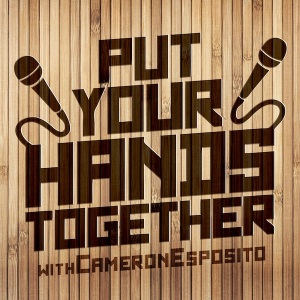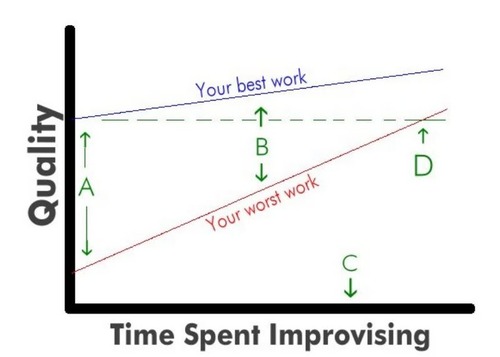Guest post on People and Chairs: The Squirrel in the Garage
Whether you’re brand new to improv or you’ve been performing for years, I want to remind you all of the Squirrel in the Garage: the thing that will awaken you to your imaginative side, or the reason you started improv in the first place.
The Squirrel is your sweet, very easily frightened creative self; the one that may not have come out since you were a child. Open, free, innocent, visceral, uninhibited. It is the beautiful creative soul that many people don’t know they have inside of them! (Yes, I believe we ALL have this.)
The Garage is your mind, and the garage door for most people is slammed shut most of the time. The door makes you feel safe, it protects you from humiliation, ridicule, and primarily, judgement. But we know that squirrels shouldn’t live in garages, they should be free, running up trees, across power lines, out in the world.
…Veteran improvisers still have that damn door slam shut and scare that squirrel back into the garage, sometimes for weeks. The difference is it happens much less than it used to. And there are times when the door is left wide open and that squirrel can come out and play, and to me, that is the sweet spot of improvisation.
There are sooooo many things I love about this article. Go read the whole thing.



